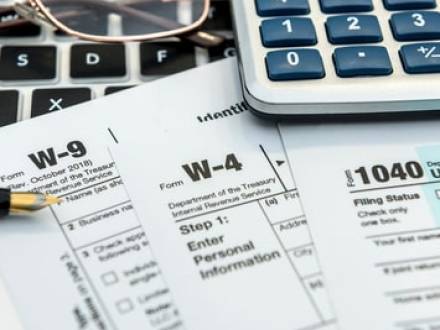Recent Blog Posts
Your Voluntary Dismissal of a Chapter 13 Case
 Suppose you filed for Chapter 13 bankruptcy and have regrets. Can you simply end it? Well, according to the Bankruptcy Code, yes you can. It explicitly states that the court will dismiss a Chapter 13 case at the request of the person who filed it, and you can do so at any point during the Chapter 13 process. If you filed a Chapter 13 bankruptcy and think you may want to voluntarily request a dismissal, you could likely benefit from speaking with a San Antonio, TX bankruptcy attorney with extensive experience practicing bankruptcy law.
Suppose you filed for Chapter 13 bankruptcy and have regrets. Can you simply end it? Well, according to the Bankruptcy Code, yes you can. It explicitly states that the court will dismiss a Chapter 13 case at the request of the person who filed it, and you can do so at any point during the Chapter 13 process. If you filed a Chapter 13 bankruptcy and think you may want to voluntarily request a dismissal, you could likely benefit from speaking with a San Antonio, TX bankruptcy attorney with extensive experience practicing bankruptcy law.
Where Does the Bankruptcy Code Say That You Can Dismiss a Chapter 13 Case?
Section 1307(b) of the Bankruptcy Code, which addresses the conversion or dismissal of bankruptcy, clearly states, "on request of the debtor at any time…the [bankruptcy] court shall dismiss a case under this chapter." It is important to highlight the two distinctive elements within this statement.
Can Bankruptcy Help You Avoid Foreclosure in Texas?
 Facing home foreclosure can be emotionally and financially devastating. If you have fallen behind on your mortgage payments, you may be wondering whether filing for bankruptcy will stop the foreclosure process and let you keep your home. This is a complicated question and the answer depends on the facts of your case and the type of bankruptcy you file. A Kerrville, TX bankruptcy lawyer could likely suggest ways to keep you in your home, depending on your specific circumstances.
Facing home foreclosure can be emotionally and financially devastating. If you have fallen behind on your mortgage payments, you may be wondering whether filing for bankruptcy will stop the foreclosure process and let you keep your home. This is a complicated question and the answer depends on the facts of your case and the type of bankruptcy you file. A Kerrville, TX bankruptcy lawyer could likely suggest ways to keep you in your home, depending on your specific circumstances.
Does Bankruptcy Stop Foreclosure in Texas?
When you file for bankruptcy, the "automatic stay" comes into effect. It temporarily prevents your creditors from taking any action on your debts, including from foreclosing on your home. However, this relief only lasts for the duration of the bankruptcy case, which is usually three to six months for Chapter 7 and three to five years for Chapter 13. However, bankruptcy does not eliminate the mortgage–meaning that the lender could foreclose on the home once the automatic stay is lifted if payments are not current. While in Chapter 13 this might not be an issue as you would likely repay your mortgage through the payment plan, in Chapter 7 that is not the case, meaning that a Chapter 7 bankruptcy does not fully stop foreclosure.
Chapter 7 Buys Very Short Amount of Time to Get Vehicle Insurance
 When most people consider Chapter 7 bankruptcy, they usually think about it as a tool to clear overwhelming debt and restart their financial lives. That is certainly accurate, but Chapter 7 also offers other surprising benefits. One lesser-known way that Chapter 7 can help those in financial distress is as a way to buy the bankruptcy filer time to reinstate lapsed vehicle insurance. This is thanks to the automatic stay and its ability to block creditors from repossessing a vehicle — which they can do when the vehicle’s insurance has lapsed. Although this benefit almost always has a short time frame, it can help. An experienced Texas Chapter 7 bankruptcy attorney can provide advice on the benefits of Chapter 7 bankruptcy.
When most people consider Chapter 7 bankruptcy, they usually think about it as a tool to clear overwhelming debt and restart their financial lives. That is certainly accurate, but Chapter 7 also offers other surprising benefits. One lesser-known way that Chapter 7 can help those in financial distress is as a way to buy the bankruptcy filer time to reinstate lapsed vehicle insurance. This is thanks to the automatic stay and its ability to block creditors from repossessing a vehicle — which they can do when the vehicle’s insurance has lapsed. Although this benefit almost always has a short time frame, it can help. An experienced Texas Chapter 7 bankruptcy attorney can provide advice on the benefits of Chapter 7 bankruptcy.
Are You Required to Have Car Insurance?
Almost every state requires vehicle owners to have at least a certain dollar amount of liability insurance coverage. Several states also require personal injury protection (PIP) insurance covering medical expenses from an accident for you, household members, and your passengers, regardless of fault. Still other states require uninsured and underinsured motorist coverage covering you when you are harmed by someone with no insurance or insufficient insurance.
The Surprising Benefits: Break a Tax Payment Plan through Chapter 7
 It is a common problem. You owed income taxes a year or two ago when you sent in your tax returns. Money was very tight so you could not just pay it off. You found out that the Internal Revenue Service lets you pay that unpaid tax through a monthly installment plan. So you set up the payment plan with the IRS. But your financial situation only got tighter because now you had a new monthly obligation you absolutely had to pay.
It is a common problem. You owed income taxes a year or two ago when you sent in your tax returns. Money was very tight so you could not just pay it off. You found out that the Internal Revenue Service lets you pay that unpaid tax through a monthly installment plan. So you set up the payment plan with the IRS. But your financial situation only got tighter because now you had a new monthly obligation you absolutely had to pay.
Now you are struggling to pay the monthly tax payment along with your living expenses and other debts. You wish there was a way to get out of your IRS monthly tax payment and other debts. The good news is that if a significant portion of your debt is an IRS monthly payment plan that you cannot afford, Chapter 7 bankruptcy may help. An experienced New Braunfels, TX bankruptcy attorney can provide guidance on using Chapter 7 bankruptcy to get out of an IRS payment plan you cannot afford.
Can a Debt Collector Garnish My Wages in Texas?
 It is a common myth that debt collectors can garnish a person’s wages when they have not repaid their debts. While this is true in many states across the country, it is mostly not true in Texas. Under Texas law, a person’s wages can be garnished only for very specific reasons, and consumer debt collection is not one of them. If you are in debt and fear that your wages may be garnished, read on to learn more about the law in Texas and contact a San Antonio, TX wage garnishment attorney.
It is a common myth that debt collectors can garnish a person’s wages when they have not repaid their debts. While this is true in many states across the country, it is mostly not true in Texas. Under Texas law, a person’s wages can be garnished only for very specific reasons, and consumer debt collection is not one of them. If you are in debt and fear that your wages may be garnished, read on to learn more about the law in Texas and contact a San Antonio, TX wage garnishment attorney.
What Is Wage Garnishment?
Wage garnishments, also sometimes referred to as wage attachments, are court orders that are sent to a borrower’s employer when they have not repaid their debt. Once the employer receives the order, the employer is then required to withhold a certain amount of money from the employee’s paycheck. The employer must then send the amount that was withheld to the creditor.
What Are Creditors Allowed to Do During Bankruptcy?
 If you are struggling with debt, the calls, letters, and threats from creditors can feel endless. Many people delay filing for bankruptcy because they fear what creditors might do. However, filing for bankruptcy actually provides legal protection that stops most creditor harassment immediately.
If you are struggling with debt, the calls, letters, and threats from creditors can feel endless. Many people delay filing for bankruptcy because they fear what creditors might do. However, filing for bankruptcy actually provides legal protection that stops most creditor harassment immediately.
Bankruptcy is meant to give people a fresh financial start, but that does not mean creditors disappear overnight. They are still allowed to take certain actions, but there are strict rules about what they can and cannot do. Understanding these rules can help ease stress and prevent creditors from taking advantage of you, and our Texas bankruptcy lawyer is here to help.
Get Immediate Protection With an Automatic Stay
As soon as a bankruptcy case is filed, an automatic stay goes into effect under 11 U.S.C. § 362, halting most creditor actions. This legal order stops wage garnishments, lawsuits, collection calls, and other debt-related actions. Creditors must immediately stop contacting you about your debt. If they continue to call or send letters, they may be violating federal law, and you may have legal options to hold them accountable.
What Medical Bills Can You Get Rid of With Bankruptcy?
 Medical debt is one of the most common reasons people consider bankruptcy. Whether from an unexpected hospital stay, an emergency surgery, or long-term medical treatment, medical bills can quickly overwhelm even the most responsible people.
Medical debt is one of the most common reasons people consider bankruptcy. Whether from an unexpected hospital stay, an emergency surgery, or long-term medical treatment, medical bills can quickly overwhelm even the most responsible people.
If you are struggling with unpaid medical bills, you may be wondering: Does bankruptcy cover medical bills? Can you file bankruptcy on medical bills in Texas? The short answer is yes, bankruptcy can often help eliminate medical debt, but the process depends on your financial situation and the type of bankruptcy you qualify for.
Understanding how medical debt is treated in bankruptcy and what happens if you do not pay can help you make informed decisions about your financial future, and our Texas bankruptcy lawyer is here to help.
Can You File Bankruptcy for Medical Bills in Texas?
Medical debt is considered unsecured debt, meaning it is not backed by collateral like a house or car. In both Chapter 7 and Chapter 13 bankruptcy, medical bills can be discharged, meaning you are no longer legally required to pay them.
Can Tax Returns Be Garnished in Texas?
 Receiving a tax refund can provide badly needed money, especially for those struggling with debt. However, during tax season, many people worry that creditors or the government will seize their refund before they ever see it. Texas has strong protections against wage and bank garnishments, but tax refunds are treated differently under both state and federal laws.
Receiving a tax refund can provide badly needed money, especially for those struggling with debt. However, during tax season, many people worry that creditors or the government will seize their refund before they ever see it. Texas has strong protections against wage and bank garnishments, but tax refunds are treated differently under both state and federal laws.
Understanding when and how a tax refund can be taken is important, not only for your peace of mind but so that you can devise a strategy to protect your money. A Texas bankruptcy lawyer can help you explore legal options to protect your income and work toward a fresh financial start.
Can Collectors Take My Tax Refund?
Texas law protects many types of income from garnishment by private creditors, including wages, Social Security benefits, and retirement income. However, tax refunds do not receive the same level of protection.
Can I Keep My Home After Bankruptcy?
 Your home is likely your most valuable asset in more ways than one. Losing your home can be a major financial and personal loss. If you are behind on mortgage payments and facing foreclosure, you are likely also struggling to keep up with any other debts you might have, such as credit card debts or medical bills. You might be considering bankruptcy as a solution but are worried about whether filing for bankruptcy would mean losing your house. In many cases, keeping your home after filing for bankruptcy is entirely possible. Filing Chapter 13 bankruptcy is a highly effective means of keeping your home when facing foreclosure. Even if you file Chapter 7 bankruptcy, there may still be options for keeping your home if that is a priority for you. A San Antonio, TX bankruptcy lawyer can help you strategize to avoid foreclosure during your bankruptcy.
Your home is likely your most valuable asset in more ways than one. Losing your home can be a major financial and personal loss. If you are behind on mortgage payments and facing foreclosure, you are likely also struggling to keep up with any other debts you might have, such as credit card debts or medical bills. You might be considering bankruptcy as a solution but are worried about whether filing for bankruptcy would mean losing your house. In many cases, keeping your home after filing for bankruptcy is entirely possible. Filing Chapter 13 bankruptcy is a highly effective means of keeping your home when facing foreclosure. Even if you file Chapter 7 bankruptcy, there may still be options for keeping your home if that is a priority for you. A San Antonio, TX bankruptcy lawyer can help you strategize to avoid foreclosure during your bankruptcy.
Using Chapter 13 Bankruptcy to Avoid Foreclosure
When you go through a Chapter 13 bankruptcy, you effectively consolidate your debts into one monthly payment. You keep making one large monthly payment for three to five years, and any unsatisfied debt is cleared. Since you are still making payments towards your debt, you can generally continue paying off your mortgage after the bankruptcy and avoid foreclosure.
Options for Avoiding Bankruptcy
 Filing for bankruptcy is a fairly drastic step. While it can offer you a fresh start without the burden of debt, it can also have a lasting impact on your credit score and may make achieving goals like homeownership more challenging. There are several alternatives to bankruptcy available for some debtors, especially those who only have one major creditor. You should explore these alternatives with an experienced New Braunfels, TX bankruptcy attorney before making the decision to file. Bankruptcy can be wonderful for those who truly need it, but it should not be your first resort if there is an alternative path to debt relief.
Filing for bankruptcy is a fairly drastic step. While it can offer you a fresh start without the burden of debt, it can also have a lasting impact on your credit score and may make achieving goals like homeownership more challenging. There are several alternatives to bankruptcy available for some debtors, especially those who only have one major creditor. You should explore these alternatives with an experienced New Braunfels, TX bankruptcy attorney before making the decision to file. Bankruptcy can be wonderful for those who truly need it, but it should not be your first resort if there is an alternative path to debt relief.
Negotiating With a Single Creditor
Most people who are struggling with debt owe numerous different debts to a series of creditors. For example, a person might have several credit cards that are all maxed out in addition to some medical debt and a mortgage in arrears. If you only have one major source of debt, you might be able to negotiate with that creditor to lower your monthly payments, waive late fees to help you catch up on payments, or reduce your interest rate so you can start paying down the principal.






